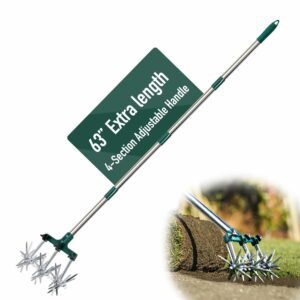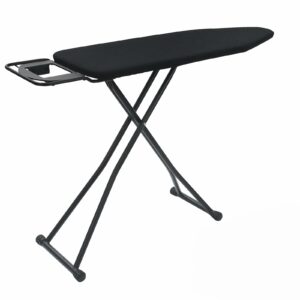Cheap Train Tickets: How to Save Money on UK Rail Travel
Train travel in the UK is one of the most convenient ways to get around, but it’s no secret that ticket prices can be steep—especially if you book at the last minute or travel during peak hours. However, with the right strategies and planning, it’s entirely possible to find cheap train tickets for almost any journey across the UK.
This guide explores proven ways to cut the cost of rail travel, the best platforms to book with, and how to avoid common ticket traps that cost travellers extra.
Why Train Tickets in the UK Seem Expensive
UK rail fares are among the highest in Europe, largely due to a combination of factors:
-
Fragmented rail operators competing under privatisation
-
Peak/off-peak pricing structures
-
High operational and infrastructure maintenance costs
-
Limited regulation on long-distance pricing
Despite these challenges, there are plenty of legal and practical ways to reduce your train travel costs.
Book in Advance for the Best Prices
One of the golden rules of train travel in the UK is to book as early as possible. Advance tickets are usually released 8 to 12 weeks before the travel date, and the earlier you book, the cheaper the fare tends to be.
For example, a same-day ticket from London to Manchester could cost over £150, while the same journey booked six weeks in advance might cost under £30.
Use platforms like:
All allow advance booking and will notify you when cheaper tickets become available.
Use Railcards for Up to 1/3 Off
Railcards offer one of the most straightforward ways to get discounted train tickets. Most cost £30 per year and offer up to 1/3 off most fares. Popular options include:
-
16-25 Railcard: For students and young adults
-
26-30 Railcard: For young professionals
-
Two Together Railcard: Great for couples or friends who regularly travel together
-
Senior Railcard: For travellers aged 60 and over
-
Family & Friends Railcard: Helps families save with kids
Railcards can often pay for themselves within just one or two return trips. You can purchase them online at Railcard.co.uk and link them directly to your Trainline or rail account.
Travel Off-Peak to Avoid High Fares
Peak hours usually run from early morning to mid-morning (around 06:30–09:30) and late afternoon to early evening (around 16:00–19:00). Off-peak tickets are significantly cheaper and often available from mid-morning through the early afternoon or later at night.
By adjusting your travel schedule slightly, you can often save 30% or more just by avoiding rush hour. Always check the specific off-peak times for your journey, as they can vary by route and operator.
Split Your Journey with Split Ticketing
Split ticketing is a method where you break your journey into multiple legs, buying separate tickets for each part—often saving more than buying a single through ticket.
For example, instead of buying a direct ticket from Birmingham to London, you might split at Milton Keynes and pay less overall, even though you remain on the same train.
Websites that help with split ticketing include:
Always make sure your train stops at the intermediate station listed in your split tickets—even if you don’t get off.
Use Cashback and Voucher Codes
Online booking platforms often partner with cashback sites. Before you book, check websites like:
-
TopCashback
-
Quidco
Search for cashback deals or voucher codes for platforms like Trainline, Raileasy, or individual train operators.
You can also sign up to train company newsletters to get discount codes for seasonal sales or flash promotions.
Avoid Booking Fees Where Possible
Some third-party booking platforms add service or card fees to your total fare. To avoid this:
-
Book directly through the rail operator’s own website whenever possible
-
Use National Rail or company-specific apps with no extra charges
-
Opt for e-tickets or mobile barcodes to avoid postal or collection fees
Every small fee adds up—booking directly and digitally is often both cheaper and more convenient.
Consider Season Tickets or Flexi-Passes
If you’re a regular commuter, a weekly, monthly, or annual season ticket can save significant money over time. In 2021, the UK government also introduced flexi season tickets, which allow travel on any 8 days in a 28-day period between the same two stations.
This is ideal for hybrid workers who only commute to the office part-time.
You can check the savings at National Rail Season Ticket Calculator.
Buy a Return Instead of Two Singles (or Vice Versa)
Return tickets are sometimes cheaper than two singles—but not always. Some routes have deeply discounted advance single fares that undercut return prices.
Before booking, check both combinations and calculate the actual total cost. The cheapest option may surprise you.
Travel Light and Avoid Seat Reservations
Some low-cost operators offer unreserved ticket options at a lower price, particularly on routes like London–Birmingham or Liverpool–Manchester. If you’re flexible about seating and travel times, this can lead to big savings.
Travelling without seat reservations also makes it easier to hop onto earlier or later trains if your plans change—though always check ticket restrictions first.
Set Up Price Alerts
Several booking platforms let you set alerts for price drops or advance ticket availability. You’ll receive emails or app notifications when cheap tickets are released or when current prices go down.
Using price alert features on apps like Trainline or the National Rail app can help you secure the best price without constantly checking.
Consider Coach Travel as an Alternative
While not a direct train saving, it’s worth mentioning that long-distance coach travel (such as with National Express or Megabus) can sometimes be dramatically cheaper than trains, especially when booked in advance.
For example, a London to Leeds train may cost £60+, while a Megabus journey could be under £10. Coaches are slower but often include free Wi-Fi and onboard toilets.
Conclusion
Train travel in the UK doesn’t have to drain your wallet. By applying strategies such as booking early, using railcards, split ticketing, and travelling off-peak, you can make significant savings on your journeys.
It only takes a few extra minutes of planning to cut train fares in half—or more. With growing pressure on household budgets, making smarter travel choices is more important than ever.
Use trusted platforms, stay flexible with your travel times, and make the most of rail discounts available to UK residents. Your next journey doesn’t have to come at a premium.
 Swan SD6060N 1.5 litre Stainless Steel Fryer with Viewing Window, Non-Stick Coating for Easy Cleaning and Adjustable Thermostat with Indicator Light, Detachable Basket Handle, 900W, Silver
Swan SD6060N 1.5 litre Stainless Steel Fryer with Viewing Window, Non-Stick Coating for Easy Cleaning and Adjustable Thermostat with Indicator Light, Detachable Basket Handle, 900W, Silver  Sage - The Custom Loaf - Bread Maker, Brushed Stainless Steel
Sage - The Custom Loaf - Bread Maker, Brushed Stainless Steel  Russell Hobbs Kettle, retro red, 1.7 l, 2400 W, quick cooking function, water temperature display in retro design, filling level marking, optimised pouring spout, vintage 21670-70
Russell Hobbs Kettle, retro red, 1.7 l, 2400 W, quick cooking function, water temperature display in retro design, filling level marking, optimised pouring spout, vintage 21670-70  Sensio Home Personal Blender Smoothie Maker - BPA Free 1L Jar & 600ml Portable Sports Bottle, Electric Blender for Fruit, Vegetables, Protein Shakes, Crush Ice & Frozen Fruit, 2 Speed + Pulse 350W
Sensio Home Personal Blender Smoothie Maker - BPA Free 1L Jar & 600ml Portable Sports Bottle, Electric Blender for Fruit, Vegetables, Protein Shakes, Crush Ice & Frozen Fruit, 2 Speed + Pulse 350W  Russell Hobbs Honeycomb Electric 1.7L Cordless Kettle (Fast Boil 3KW, Grey premium plastic, matt & high gloss finish, Removable washable anti-scale filter, Push button lid, Perfect pour spout) 26053
Russell Hobbs Honeycomb Electric 1.7L Cordless Kettle (Fast Boil 3KW, Grey premium plastic, matt & high gloss finish, Removable washable anti-scale filter, Push button lid, Perfect pour spout) 26053  Rolling Kitchen Island Cart with Solid Wood Countertop Spice Rack and Wheels Portable Kitchen Cart (1 Piece)
Rolling Kitchen Island Cart with Solid Wood Countertop Spice Rack and Wheels Portable Kitchen Cart (1 Piece)  150FT Expandable Flexible Garden Hose with 7 Setting Professional Water Spray Nozzle
150FT Expandable Flexible Garden Hose with 7 Setting Professional Water Spray Nozzle  Swan SK14610FUS Nordic Cordless Jug Kettle with Fast Boil Technology, Overheat Protection, Soft Touch Handle, 1.7L, 3KW, Fuchsia Rose, Fusia
Swan SK14610FUS Nordic Cordless Jug Kettle with Fast Boil Technology, Overheat Protection, Soft Touch Handle, 1.7L, 3KW, Fuchsia Rose, Fusia  Salter EK3131 Espressimo Coffee Machine – 4-Shot Espresso Maker, Milk Frothing Wand, Includes 240 ml Glass Carafe, Barista Style Latte And Cappuccino, 5-Bar Pressure, Stainless Steel Filter, 870W
Salter EK3131 Espressimo Coffee Machine – 4-Shot Espresso Maker, Milk Frothing Wand, Includes 240 ml Glass Carafe, Barista Style Latte And Cappuccino, 5-Bar Pressure, Stainless Steel Filter, 870W  Revel CCM104 Wet and Dry Grinder, Plastic, White/Green
Revel CCM104 Wet and Dry Grinder, Plastic, White/Green  Rotary Cultivator Set, 25"-63" Adjustable Gardening Rotary Tiller and Hand-Held Garden Cultivator Tool with Steel Detachable Tines, Reseeding Grass or Soil Mixing
Rotary Cultivator Set, 25"-63" Adjustable Gardening Rotary Tiller and Hand-Held Garden Cultivator Tool with Steel Detachable Tines, Reseeding Grass or Soil Mixing  Rainberg 122 x 38cm Folding Ironing Board with Jumbo Iron Rest, Adjustable Height Up To 93cm, Foldable & Collapsible Ironing Table (Black)
Rainberg 122 x 38cm Folding Ironing Board with Jumbo Iron Rest, Adjustable Height Up To 93cm, Foldable & Collapsible Ironing Table (Black)